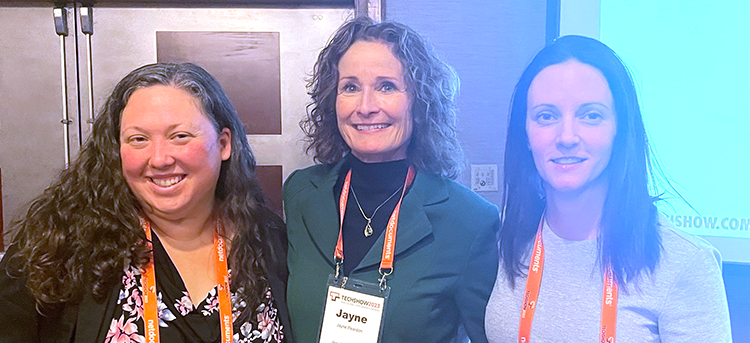Which consumers are interested in legal services from nonlawyers and why?

Image from Shutterstock.
A forthcoming research study from the Duke Center on Law and Technology found that some people want to solve legal issues on their own, but they would like a way to check in with someone to make sure they aren’t missing anything.
Kelli Raker, an associate program director for law, technology and entrepreneurship programs at Duke Law, discussed the study Friday at an ABA Techshow panel titled: “Justice Tech: Using Innovation to Reduce the Access to Justice Gap.” Her co-presenter was Natalie Anne Knowlton, a 2023 ABA Journal Legal Rebel and the founder of Access to Justice Ventures, which focuses on scalable solutions for legal consumers.
The Duke study includes interviews from “legal innovators,” as well as people with legal issues who did not have counsel. Raker said the research found that many consumers interviewed weren’t aware of unauthorized practice of law statutes.
“They’d be looking for advice from an attorney online, and couldn’t find it, because it’s not allowed,” she said.
Follow along with the ABA Journal’s coverage of the ABA Techshow 2023 here.
Also, the study found that many people working for legal technology companies dedicated to bridging the access-to-justice gap were “dying” to work with lawyers, according to Knowlton.
“Because they legitimize their services. Not everyone wants to be the Uber of the legal world and crash through boundaries,” she said.
However, Raker and Knowlton noted that state laws about the unauthorized practice of law and fee sharing with nonlawyers often prevent such partnerships.
Also, they said the idea that access-to-justice issues are limited to the indigent is incorrect. According to Knowlton, income can be a terrible indicator of someone’s ability to access a lawyer.
“I’m sure you know someone who makes $60,000 to $100,000 a year, who has student debt, or medical debt or family responsibilities. I think those people need access and options [to legal advice] as much as low-income populations,” she said.
 Kelli Raker (left) and Natalie Anne Knowlton (right) presented the “Justice Tech: Using Innovation to Reduce the Access to Justice Gap” panel. Jayne Reardon (center) gave the introduction. Photo by Stephanie Francis Ward.
Kelli Raker (left) and Natalie Anne Knowlton (right) presented the “Justice Tech: Using Innovation to Reduce the Access to Justice Gap” panel. Jayne Reardon (center) gave the introduction. Photo by Stephanie Francis Ward.
Knowlton compared the situation to an ice cream sandwich, with the chocolate wafers representing big business and people who qualify for legal aid. The ice cream represents people with varying incomes, who generally would not qualify for free legal services.
“We have a lot of access to justice in the top and the bottom,” she said. “But there’s some purchasing power in the middle of the ice cream sandwich.”
Updated on March 7 to correct the attribution of a quote.



